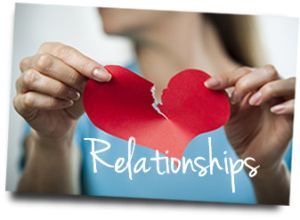We all have relationships in our lives.
We can have relationships with family, friends, teachers, support workers or intimate partners.
Intimate relationships
We can have different types of intimate relationships.
They can be long and committed, short and casual, or anywhere in between. They can be with people of the same gender, or with people of different genders. They can be online or face-to-face.
Whatever relationship we are in, we want it to feel good and we want to feel respected.
Relationships can bring us happiness, but also challenges. It is important you are supported when there are challenges, or when things do not feel OK.
Brook – healthy lives for young people has more information on relationships, busting the myths, and giving you real stories and helpful advice on online dating and staying safe.
When relationships are good
When relationships are good, they are fun, they make us feel good.
We should feel respected and listened to, and our personal boundaries and needs should be respected.
These are things to look for in a good relationship:
- being able to talk to each other
- feeling able to be honest with each other
- trusting each other
- feeling safe
- being able to enjoy time together and time apart
Conflict in relationships
Disagreements, arguments, or conflict are part of every relationship. They can feel upsetting and stressful when they happen so finding healthy ways to manage disagreements is important, and can strengthen your relationships.
Healthy ways to manage conflict or disagreements include:
- listening to each other
- staying respectful
- letting each other know how you are feeling
- taking some time to calm down before trying to talk about conflict
It is important to set boundaries in your relationships, and know what to do when someone crosses these. It is also important to respect your partner’s boundaries.
Healthy, unhealthy and abusive relationships
Healthy relationships
Intimate relationships should be a good part of your life, enjoyable, fun, and safe. We call these healthy relationships.
In healthy relationships you make decisions together and can openly discuss whatever you are dealing with, like relationship problems and sexual choices. You enjoy spending time together, but can also be happy when apart.
Healthy relationships are based on:
- respect
- good communication
- trust
- honesty
- equality
Unhealthy relationships
It is not always easy to know when relationships have moved from being healthy to unhealthy, or even abusive.
Unhealthy relationships are where one, or both, partners behave in controlling, hurtful, or deceptive ways.
A relationship is not healthy if one, or both partners:
- are disrespectful to the other
- make unkind comments or use unkind names
- do not trust the other
- lie to each other
- try to control the other
- put pressure on the other, for example, to have sex
- only want to spend time with their partner
- feel scared of the other

Abusive relationships
Anyone can find themselves in a relationship that is unhealthy. But when is an unhealthy relationship abusive? What is the difference?
Abusive relationships are based on an imbalance of power and control. One person is in control, making all the decisions – about sexual choices, friends, boundaries, even what is and is not true. They might use physical violence or force to make their partner do what they want. Or they might use psychological or emotional violence, like threats and bullying.
Abusive intimate partners try to isolate their partner from their friends and family. This can make it feel like you are not able to talk to other people, especially about what is really happening in your relationship.
Here are some examples of abusive behaviour in a relationship:
- name calling, belittling, putting down, or embarrassing their partner
- body shaming
- controlling behaviour
- isolating their partner from others
- threats
- violence, like hitting or pushing
- always watching or tracking their partner, like monitoring their phone
Get help or more information
You can find some great advice at:
- Action it now on healthy, unhealthy & toxic relationships
- Relate for some common relationship worries for young adults, explained through real life scenarios


